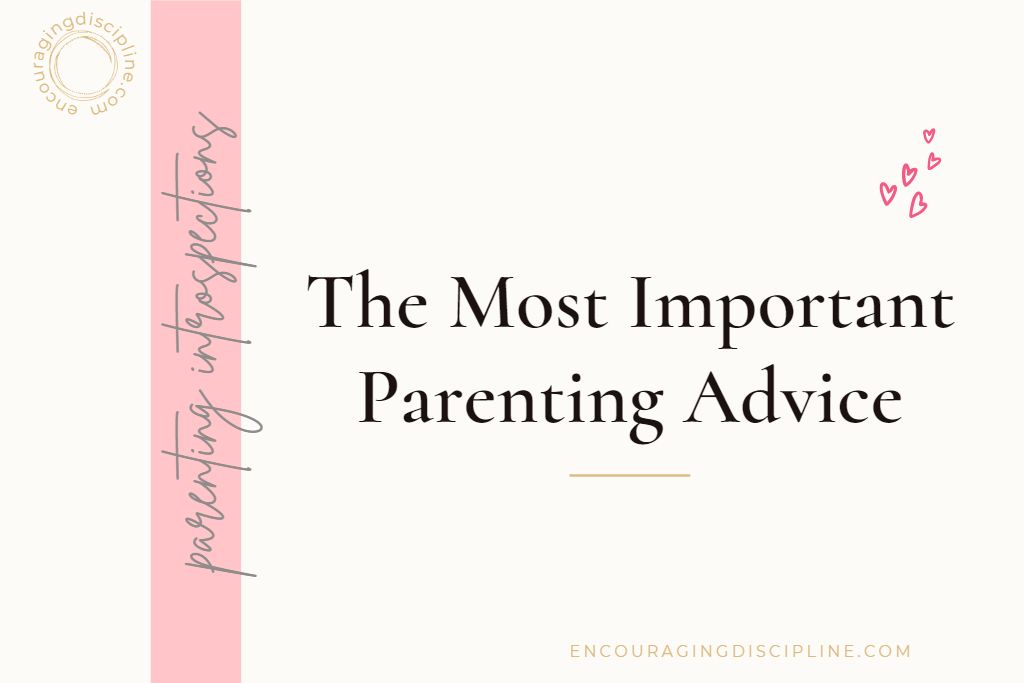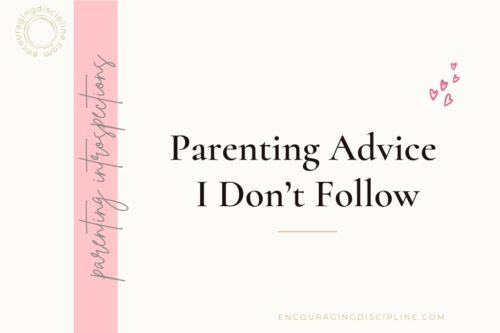The Most Important Parenting Advice
What’s the most important parenting advice you received? If you haven’t thought about this before, take a minute to think about it now.
I know it may be easier to remember the bad advice you received, because of our negativity bias. And that’s pretty important because we don’t want to repeat bad advice.
But it’s equally important to be aware of good advice that we received or to think about what good advice we would like to pass on to help other parents.
Today I’d like to offer you what I consider to be one of the best pieces of advice for parents. And that is to talk with your kids. A lot.
Most parents of kids older than 8 tell me, “My kids never talk to me.” Or “How can I get my kids to talk more?”
If you feel like your kids talk with you, then you still want to keep reading this so you can maintain that dynamic and maybe even improve it.
Why should we want our kids to talk with us? I think the answer is pretty obvious. We want to know what’s going on in their lives, minds, and hearts, so we can guide and help whenever necessary. When we spend plenty of time talking with our kids, we forge a deeper connection and bond.
When we talk with our kids, we can offer information and guidance, but also comfort, a safe and loving space, and just plain fun.
As children grow, we notice that they become quieter and talk less with their parents. Maybe this is normal. Maybe it’s not. I don’t know how much of it is developmental and how much is determined by the way that we interact and connect with them over the years. But we want our kids to keep coming to us for chats.
And how we show up in these conversations over the years will impact our children’s willingness to continue talking with us.
How to talk with kids
So here are my rules for talking with kids:
1. No taboos
Be open to talking about anything and everything your kids bring up. If you notice that you are feeling embarrassed by any topic that comes up, don’t try to stop the conversation. Avoiding a topic will only create shame about the subject. It’s best to discuss things in a factual, matter-of-fact way.
When you notice that you are feeling uncomfortable about a subject, try to breathe, let go of the embarrassment, and be open to the conversation. And this brings me to the next point:
2. No judgment
Try to leave out evaluations from your discourse. This means not ranking everything and everyone into good, bad, and other qualifiers, except for when you talk about your family’s values. Listen without judgment, be open to anything your kids bring to the discussion, pause, and ask curiosity questions.
These questions may sound like, “Tell me more. What do you mean? What else do you know about this? What do you think this means? Then what happened? What did you do? How did that make you feel? What do you think about this?” You get the idea.
3. Learn together
You don’t have to have answers to everything your kids ask. You can tell them, “You know what? I don’t know. Let me think about that.” Or, “Let’s look it up together.”
You are doing two things here: in the first case, you are teaching your child that it’s ok to take your time to think instead of rushing to give an answer.
In the second case, you have the opportunity to teach your child how to search for information, identify trusted sources of information, process that information, and compare information from different sources.
If you walk into my home at any given time, one of the first things you will notice is how loud it is. My kids are talking nonstop. From the moment they get in the car at school pickup until it’s time to go to bed, there’s constant chatter.
You may be tempted to think this is because we are all extroverts in this house. But that could not be further from the truth. I am an introvert and this vibrant chatter feels hard on my brain. I have to make sure to give myself a quiet break every afternoon so I can keep up with my kids.
This is the result of years of effort, attention, and time. I try to engage as much as I can with my kids and appreciate their willingness to talk with me. I hope I can come back here ten years from now and tell you that they continue seeking my company and conversation. And I hope you will tell me the same about your kids.
Finally, you can’t force your child to talk with you. If they don’t feel like it, they won’t talk. But you can take advantage of the times when they do open up. Many times kids seem to want to talk at bedtime, in the car, or while walking. Try to accept their invitation to talk and find your presence even if at first you’re not in the mood. It will pay off. Talking can be a wonderful opportunity to connect, learn and practice social skills together.
What is the best parenting advice you have received? Or what is something you’ve learned as a parent that you think would be useful for other parents to know?







